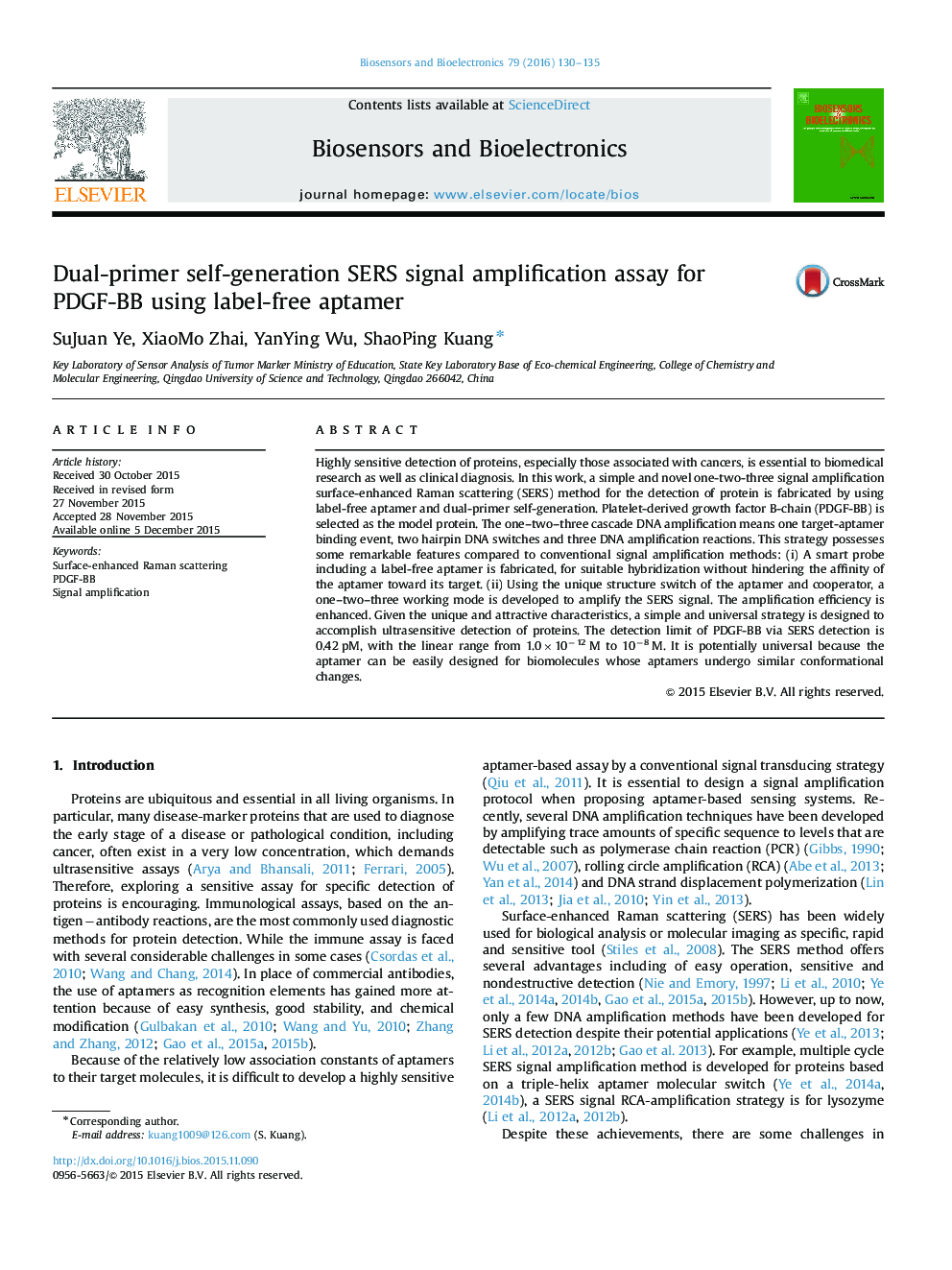| Article ID | Journal | Published Year | Pages | File Type |
|---|---|---|---|---|
| 7230865 | Biosensors and Bioelectronics | 2016 | 6 Pages |
Abstract
Highly sensitive detection of proteins, especially those associated with cancers, is essential to biomedical research as well as clinical diagnosis. In this work, a simple and novel one-two-three signal amplification surface-enhanced Raman scattering (SERS) method for the detection of protein is fabricated by using label-free aptamer and dual-primer self-generation. Platelet-derived growth factor B-chain (PDGF-BB) is selected as the model protein. The one-two-three cascade DNA amplification means one target-aptamer binding event, two hairpin DNA switches and three DNA amplification reactions. This strategy possesses some remarkable features compared to conventional signal amplification methods: (i) A smart probe including a label-free aptamer is fabricated, for suitable hybridization without hindering the affinity of the aptamer toward its target. (ii) Using the unique structure switch of the aptamer and cooperator, a one-two-three working mode is developed to amplify the SERS signal. The amplification efficiency is enhanced. Given the unique and attractive characteristics, a simple and universal strategy is designed to accomplish ultrasensitive detection of proteins. The detection limit of PDGF-BB via SERS detection is 0.42Â pM, with the linear range from 1.0Ã10â12Â M to 10â8Â M. It is potentially universal because the aptamer can be easily designed for biomolecules whose aptamers undergo similar conformational changes.
Related Topics
Physical Sciences and Engineering
Chemistry
Analytical Chemistry
Authors
SuJuan Ye, XiaoMo Zhai, YanYing Wu, ShaoPing Kuang,
